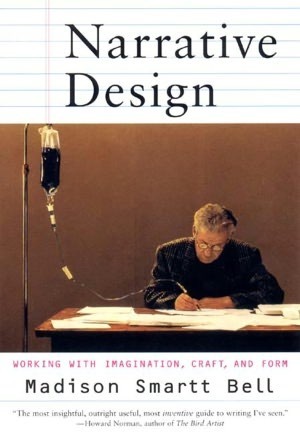The Writing Life: Some Workshop Thoughts
 I went exploring the Hood River Library this month. One of the things I asked them was about writing’s group. After being told to ask so-and-so instead and whatnot, I found the person who did know. ”Welllll,” she said, “I do know of tons of writing groups, they’re just all…” She made an expression of extreme disgust. ”Exclusive. Or something. They’re like book clubs, and don’t want to meet anyone new.”
I went exploring the Hood River Library this month. One of the things I asked them was about writing’s group. After being told to ask so-and-so instead and whatnot, I found the person who did know. ”Welllll,” she said, “I do know of tons of writing groups, they’re just all…” She made an expression of extreme disgust. ”Exclusive. Or something. They’re like book clubs, and don’t want to meet anyone new.”
So much for a warm welcome in Hood River (at least the library staff are awesome). Hopefully I’ll find some less exclusive writer types during Nanowrimo. Although I do understand the desire to be exclusive. When you get a small positive group of beta reader together, you tend to want to hold onto each other. You don’t want the idiots tromping all over your work.
On the other hand, it makes finding/meeting this wonderful group when you don’t already have it near impossible. Not to mention, sometimes those so-called newbie idiots might be awesome and wonderful people you could become lifelong friends with. Sigh.
So, for the moment that means sticking with my very positive (and wow, welcoming to new people while letting people form smaller groups) online writing workshops: Critique Circle and Holy Worlds.
Now, I love these groups, I’ve met a ton of great people there, but I have noticed one thing about larger writer’s workshops. The group tends to develop a style. At Critique Circle, the style is third person limited (first person is acceptable) but we must have an immediate and close POV, lots of action, active language as well, and a minimum of narration/description.
Holy Worlds tends to have the opposite style. Use mythic language, lots of narrative explaining, traditional fantasy conventions and omniscient POV is preferred. Take time to have lots of details about how your world is created, made up languages, magical rules, and go ahead and explain them in detail.
These groups are made up of a great number of people, so how is it they have a style? No one is in charge, telling people how to write, and yet what people like, what they get excited about, and what they recommend really does differ between groups. I’ve decided that groups as a whole drift in a certain direction. Something important I should keep in mind when submitting a novel to them… if it’s the sort of novel I’ll get a good group response from, vs if this novel isn’t really right for this critique group.
 Now, back the Hood River library and its hidden exclusive writing groups. I gave up on finding something prior to Nanowrimo, and just checked out some books on writing. Among them was “Narrative Design” by Madison Smartt Bell. Well, I was fascinated by what Bell had to say about his experience with the rather famous Iowa Writer’s Workshop. Bell had always assumed the dreaded “Literary workshop style” people complain about was taught, but found with the variety of teachers, always rotating, no one was teaching a style. Instead, he found several pressures unintentionally created a group style.
Now, back the Hood River library and its hidden exclusive writing groups. I gave up on finding something prior to Nanowrimo, and just checked out some books on writing. Among them was “Narrative Design” by Madison Smartt Bell. Well, I was fascinated by what Bell had to say about his experience with the rather famous Iowa Writer’s Workshop. Bell had always assumed the dreaded “Literary workshop style” people complain about was taught, but found with the variety of teachers, always rotating, no one was teaching a style. Instead, he found several pressures unintentionally created a group style.
First, in a critique group, everyone is setting out to find flaws on purpose. When you don’t find something wrong several paragraphs in, you start worrying about what you’re going to say/recommend to the author. A crit that doesn’t find flaws is a “failed” crit. That and the following discussion tends towards group pressures. Even on a workshop like Critique Circle, where you can’t read the crits until the story is done, I find that certain ideas make the rounds between members even so. Bell had some great advice on how to listen though to such group fault-finding, which even as an experianced workshop member, I found a great insight.
When the talk begins to shift from flaws in realizing the story’s apparent intention to the idea that the intention itself ought to have been different — ie that the writer should have written som different kind of story — that’s a signal to the teacher that the story may have been successfully completed. It’s a good thing for students whose work is under discussion to learn to listen for that signal too.
What a great point! And, what a moment to make an author pause too, when looking over your crits, because you mostly shouldn’t change the kind of story you’re writing just because your writing group thinks you should write something different. This is your story… which ties into Bell’s second issue with workshops, the idea of trying to please everyone on a technical level. Bell writes:
At Iowa, the students were very diligent about annotating each manuscript and writing an overarching commentary at the end… when the classroom discussion was finished, these fourteen annotated copies would be handed over to the unfortunate authoer, alnog with mine… I found out through private conversations that many of these students, if not all, would indeed spread out fifteen different annotated copies and try somehow to incorperate all the commentary into a revision of the work.
The results of this kind of revision were often very disheartening. I’d get second drafts that very likely had less obvious flaws than the first, but also a whole lot less interest. These revisions tended to live up to commonly heard, contemptuous descriptions of workshop work, being well-tooled, inoffensive, unexceptional, and rather dull.
I’ve found out myself when looking at crits that sometimes people complain about opposite things, that I’ve got conflicting advice. Even when I don’t, I know what he means about it ruining the voice and style of a piece to have so many editors taking a hand in it. I know exactly what he’s talking about. All the advice I get is soooo valuable, I don’t want to waste it, but the truth is, I shouldn’t take all of it. Just the bits of advice that fit with my vision and voice for my story.
I’m grateful for each and every crit I get. They buoy up my confident, support me in my process, and challenge me to always strive to do better. However, I also agree with Bell’s decision to change what he said at the beginning of each workshop to something like this:
Assume that when your work is being discussed, about 90 percent of what you hear will be useless to you and irrelevant to what you have done. Learn to listen carefully and to discriminate what’s useful to you from what’s not. Remember the revelevant part adn ignore the rest. If even one person understands what you intended to be understood, then you can say you have succeeded. Past that, the only issue is just how widely accessible you want your work to be. Don’t try to please the group… The person you have to please is yourself.
So, get out there, get crits, thank all those helpful fellow writers, and then be discerning on your vision for your work. I can tell I’m going to enjoy the rest of this book too.



